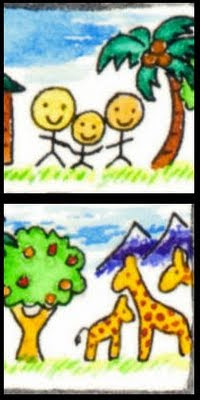
¡Próspero Año Nuevo!
Godt Nytår
×åñòèòà Íîâà Ãîäèíà
MELKAM ADDIS AMET YIHUNELIWO!
رأس السنة
Heri Za Mwaka Mpyaº
L'Shannah Tovah
農曆新年
Happy New Year!










I would like to propose that for a start we bring an end to the idea that there is anything that we cannot end.
This is not to promote blind hope, nor an ignorance for the work, the struggle, that goes into change. Rather it is to take on the work that needs to be done with our feet firmly on the ground and our minds open to the possibility that we might succeed.
On April 27th, 1994, Nelson Mandela was elected president of South Africa, bringing an end to 48 years of Apartheid rule and hundreds of years of racial segregation. I had the opportunity to serve as a Peace Corps Volunteer in Mpumalanga (formerly the Eastern Transvaal) starting in 1998, only four years after this historic moment. In my role as a "school and community resource advocate" I worked with both white Afrikaners and black Africans, in part because many black laborers still worked on white-owned farms and sent their children to "farm schools" built on the land.
Among the lessons I learned was that things weren't entirely black and white. Although opportunities for black students were severely curtailed, many farmers had worked quite cooperatively with their schools and provided the best they could within the confines of Apartheid. With a new government and the radical new idea that all people were created as equals, the schools and farmers were in the midst of a transition that was exciting, transformative and often painful. Some Afrikaners turned their backs entirely on what used to be "their" schools. But others didn't. They were willing to come to the table and work with the Africans in a new role, as equals. In these moments, which as an outsider I was sometimes able to facilitate, I would catch glimpses of that most miraculous of things--the opening of a human mind.
In these moments I would get an inkling of the history, all the moments and years of hate, misunderstanding, and somehow carrying on with life despite hate and misunderstanding, that had led up to the present.
Only a year ago tomorrow, Barack Obama was elected president of the U.S. So many hopes and dreams have been pinned on him that I don't envy him his job. Michael Moore, in his latest film, "Capitalism," seems to be pleading to what he clearly sees as Obama's better side--the Obama who sides with the little guy, rather than the big corporation. Moore asks us to help him in bringing an end to capitalism as it exists now, in which the richest 1% of the population control 95% of the wealth and entities like Wal-Mart, Bank of America and Citigroup are allowed to take out "dead peasant" life insurance policies that allow them to profit from the death of an employee. Moore is asking us--and Barack Obama--to take part in a peasants' revolt.
Just as it is never too late to do the right thing, so too it is never too early. It is never too early to change ourselves for the better. Sometimes I find myself paralyzed when contemplating a positive action, because I am scared. I am scared to stick my neck out and look like a fool. It is so much easier to stay in my shell of life-as-it's-always-been and let the world alone. But as Anais Nin says, "There [comes] a time when the risk to remain tight in the bud was more painful than the risk it [takes] to blossom."
December 22nd, 2012, can start whenever we choose it to. Peasants, let us organize and revolt. One cannot say how many years or lifetimes it will take to achieve our goals. But is time to blossom.




